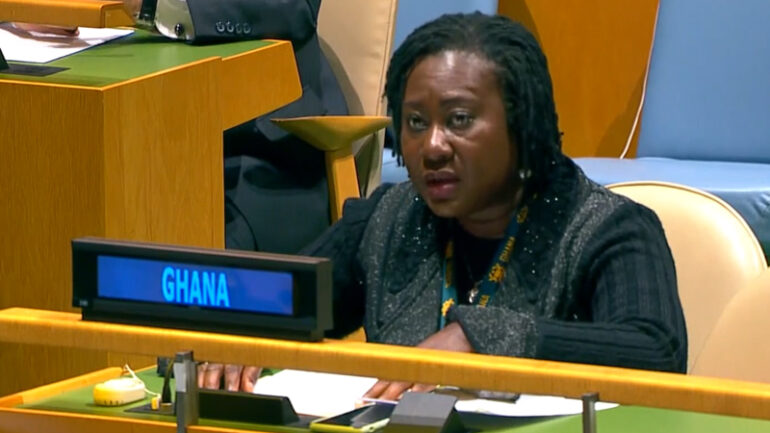UNGA debate on reform of equitable representation on the Security Council

- Posted by admin
- Posted in Statement & Remarks
Mr. President,
Ghana aligns herself with the statement delivered by the Permanent Representative of Sierra Leone on behalf of the Africa Group and makes the following additional remarks in her national capacity. Present global developments especially as it relates to peace and security have further reinforced the urgency required in reforming the United Nations Security Council, the body placed in trust by all of us to help us maintain global peace and security. The reform of the Security Council is past due, and, on that matter, we believe, that recent developments in Ukraine but also elsewhere around the world, where the Council has not been able to effectively help in maintaining peace and security, demonstrate the unanimity of views on the need for reform. Our leaders told us as much when they came in for the high-level week of the 77th Session of the General Assembly.
As stated by the President of Ghana, H.E. Nana Addo Dankwa Akufo Addo at the Council meeting, there is the need to “revisit the vexed issue of the reform of the United Nations system, especially of the Security Council, and to do so on the basis of the African Common Position on UN Reform, as enunciated in the Ezulwini Consensus, if, indeed, the authority of this Council which, in recent times, appears to have been devalued, because of its anachronistic structure, is to be restored”. The nature of the reform we seek may be a more difficult question for some, because of the entrenched interest provided through the privilege of permanent membership, but the question that we should ask is whether we would want to retain a narrow privilege over a broken system or to aspire for an enduring influence over an effective instrument of global peace.
We are clear in our minds that the veto does not serve our collective interest if we genuinely want the Council to be more responsive in addressing the complex security challenges of our time. Ghana, and indeed the African Group continue to hold the view that the veto power is anachronistic and counter-productive to the effective workings of our modern arrangements for maintaining global peace and security. The veto must go but if it exists, it must be constrained by rules in its application. We know that some argue that the veto is important to ensure that there is no direct confrontation among the major powers. That may have well been a realistic assumption during the drafting of the Charter, but as we know also, the proxy wars that were fought on our lands in avoiding a direct confrontation has been equally as devastating to most of our countries as any of the major wars.
There is therefore the need to question such arguments and to refocus our commitment to the principles of peace as a basis for being a guardian of international peace and security, rather than a Member State’s capacity to unleash unimaginable harm and untold suffering. In respect of the expansion of the Security Council, Ghana reaffirms her conviction that the Common African Position on the reform of the Security Council, which advocates support for the expansion of both the permanent and non-permanent categories of membership, within a formula that fully accommodates Africa’s expressed desire for two permanent and five nonpermanent seats, consistent with the Ezulwini Consensus and Sirte Declaration is the right way to go. Almost all African countries contributed troops to the Allied Forces and the denial of the continent of its permanent place on the Security Council belies the argument that is sometimes made that permanent membership was in recognition of the contributions of the victors of the Second World War. What of the African colonies of the time? The historical injustice must end. We believe that an enlarged Council in our view should not be less than twenty-six (26) seats.
Mr. President,
With the momentum that has been generated by the high-level week on the reform of the Security Council, we hope that during the upcoming IGN process, the Co-Chairs would be able to guide us to build on the progress made in the coChairs elements paper during the 76th IGN Session by reconciling our differences on the reform devoid of ambiguity. During the 77th session we must get closer to the long-awaited comprehensive reform of the Security Council.
I thank you.
